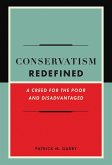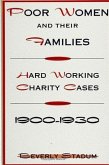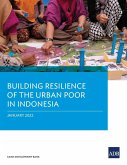Do federal, state, and local governments differ in their responsiveness to the needs of the poorest citizens? Are policy outcomes different when federal officials have greater influence regarding the use of federal program funds? To answer such questions, Michael Rich examines to what extent benefits of federal programs actually reach needy people, focusing on the relationship between federal decision-making systems and the distributional impacts of public policies. His extensive analysis of the Community Development Block Grant Program (CDBG), the principal federal program for aiding cities, reveals that the crucial divisions in domestic policy are not among the levels of government, but between constellations of participants in the different governmental arenas. Rich traces the flow of funds under the CDBG from program enactment through three tiers of targeting--to needy places, to needy neighborhoods, and to needy people--and offers a comparative study of eight CDBG entitlement communities in the Chicago area. He demonstrates that while national program parameters are important for setting the conditions under which local programs operate, the redistributive power of federal programs ultimately depends upon choices made by local officials. These officials, he argues, must in turn be pressed by benefits coalitions at the community level in order to increase the likelihood that federal funds will reach their targets. Originally published in 1993. The Princeton Legacy Library uses the latest print-on-demand technology to again make available previously out-of-print books from the distinguished backlist of Princeton University Press. These editions preserve the original texts of these important books while presenting them in durable paperback and hardcover editions. The goal of the Princeton Legacy Library is to vastly increase access to the rich scholarly heritage found in the thousands of books published by Princeton University Press since its founding in 1905.
Hinweis: Dieser Artikel kann nur an eine deutsche Lieferadresse ausgeliefert werden.
Hinweis: Dieser Artikel kann nur an eine deutsche Lieferadresse ausgeliefert werden.








